Protests erupted in Georgia’s capital city on Tuesday after parliament passed the first reading of a controversial draft law that would require some organizations receiving foreign funding to register as “foreign agents.”
Protesters’ chants, with insults aimed at both Georgian politicians and Russian President Vladimir Putin, underline fears that the bill follows the model of a controversial law in neighboring Russia that has already imposed draconian restrictions and requirements on organizations and individuals with foreign ties.
Thousands of protesters could be seen outside the parliament building on Tuesday night, holding not just the Georgian flag but also European Union and Ukraine flags, as longstanding tensions in the country — parts of which are occupied by Russia — bubbled to the surface.
Some protesters threw stones and petrol bombs, as security forces responded with tear gas and water cannon. Video posted on social media also showed protesters storming a barricade at the entrance to the parliament building and tearing it down.
There are fears the law could impede the country’s hopes of closer ties with the European Union.
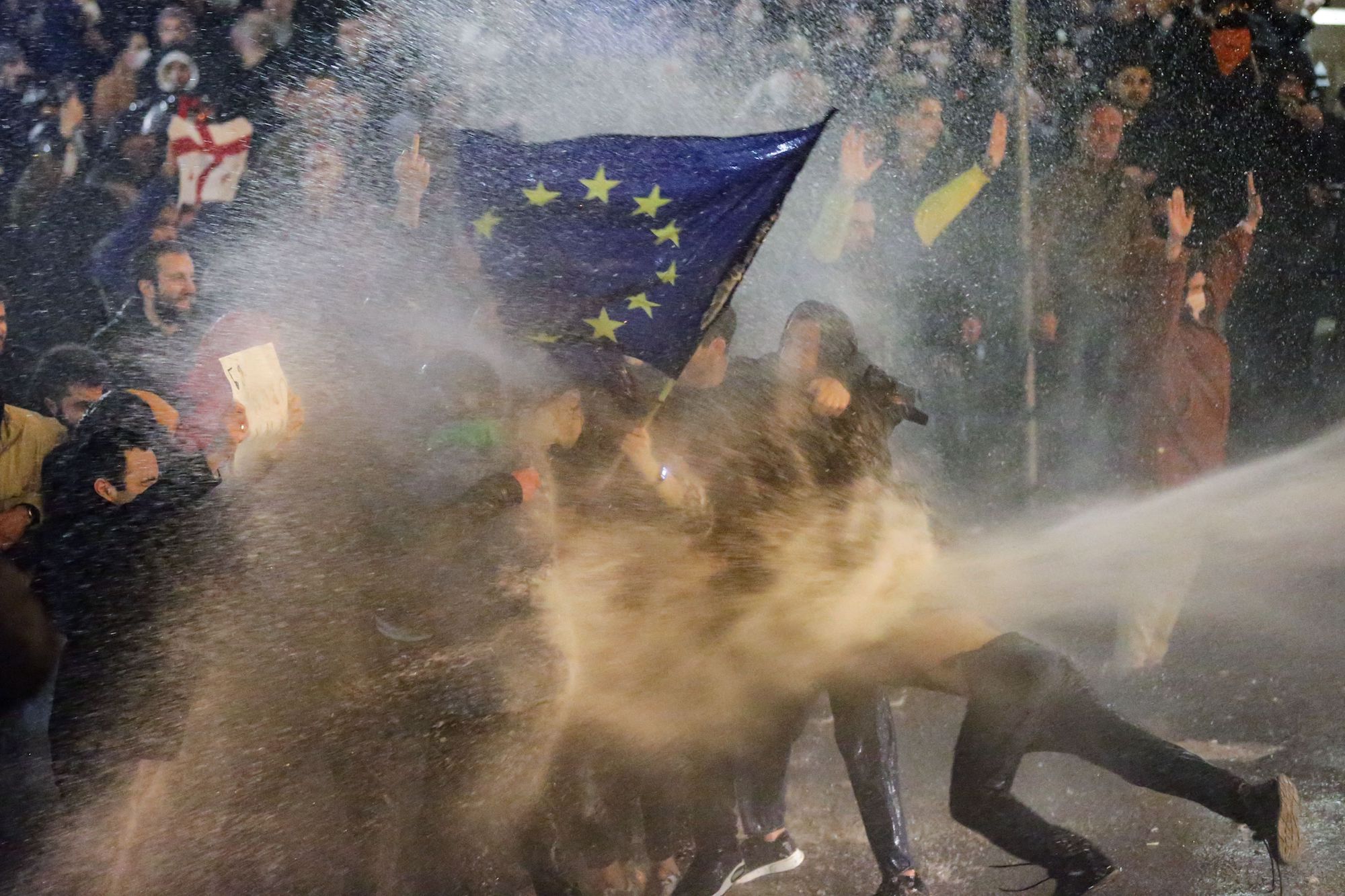
The President of Georgia, Salome Zourabichvili, threw her support behind protesters, in a video message posted on Facebook, saying “the path of European integration must be protected. Those who support this law today, all those who voted for this law today are violating the Constitution. All of them are alienating us from Europe,” she said.
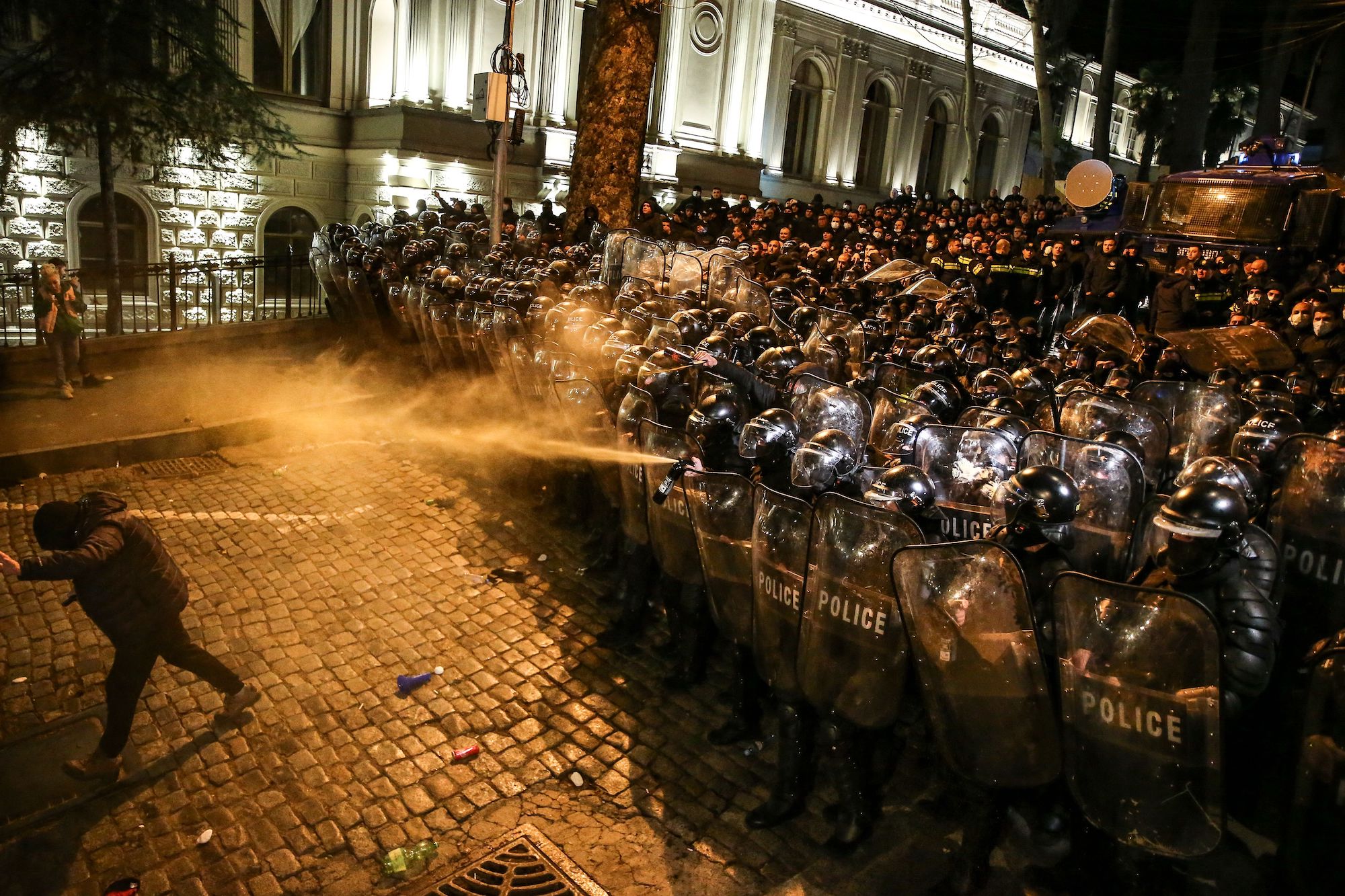
Zourabichvili called it “an unnecessary law that did not come out of nowhere, but was dictated by Moscow,” telling protesters that she was “standing next to you because you are the very people who represent free Georgia today. The Georgia which sees its future in Europe and will not let anyone take this future away from it.”
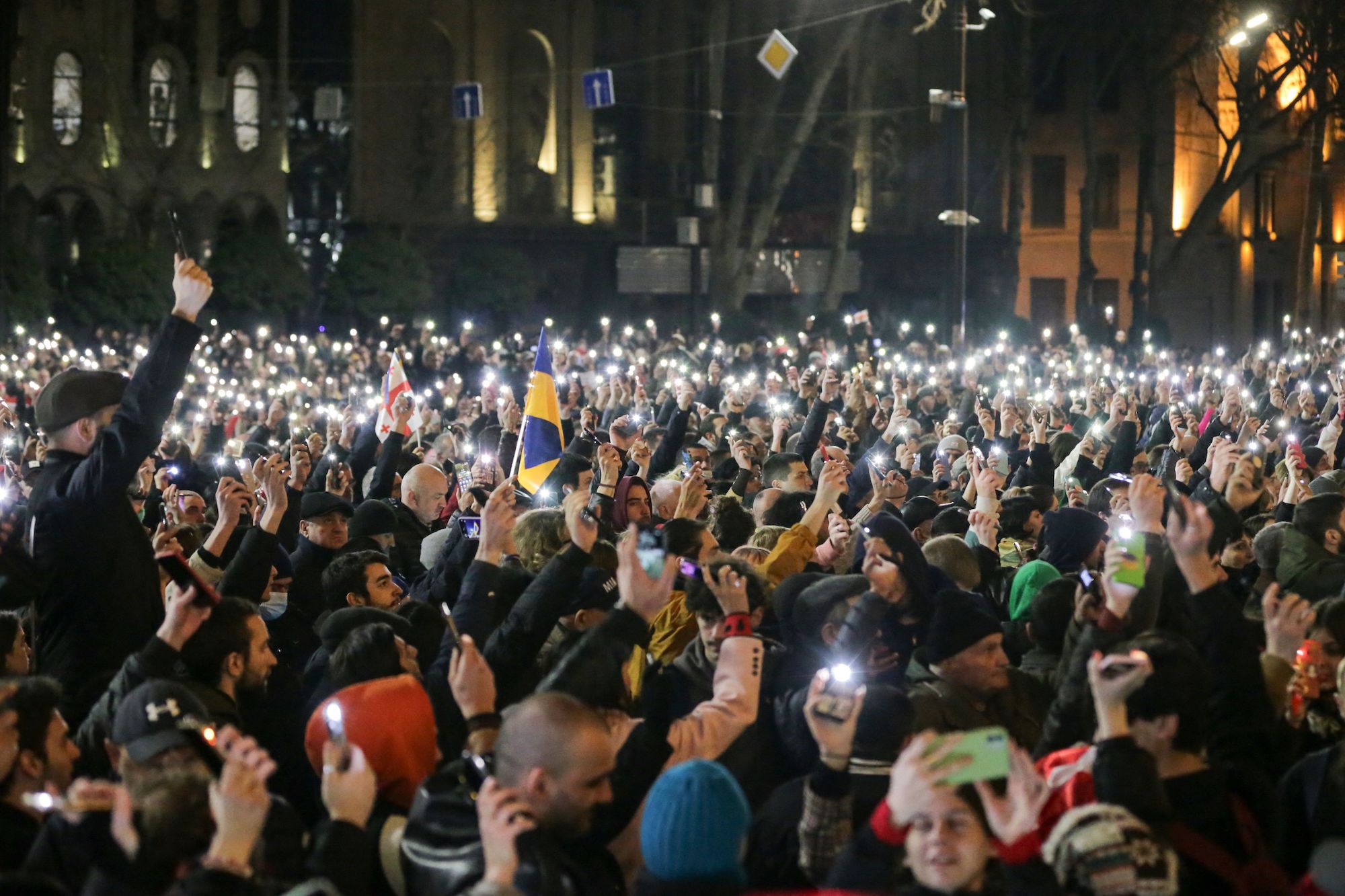
The Georgian bill has been widely criticized as posing a potential chilling effect for Georgian civil society, and particularly NGOs and news organizations with links to Europe.
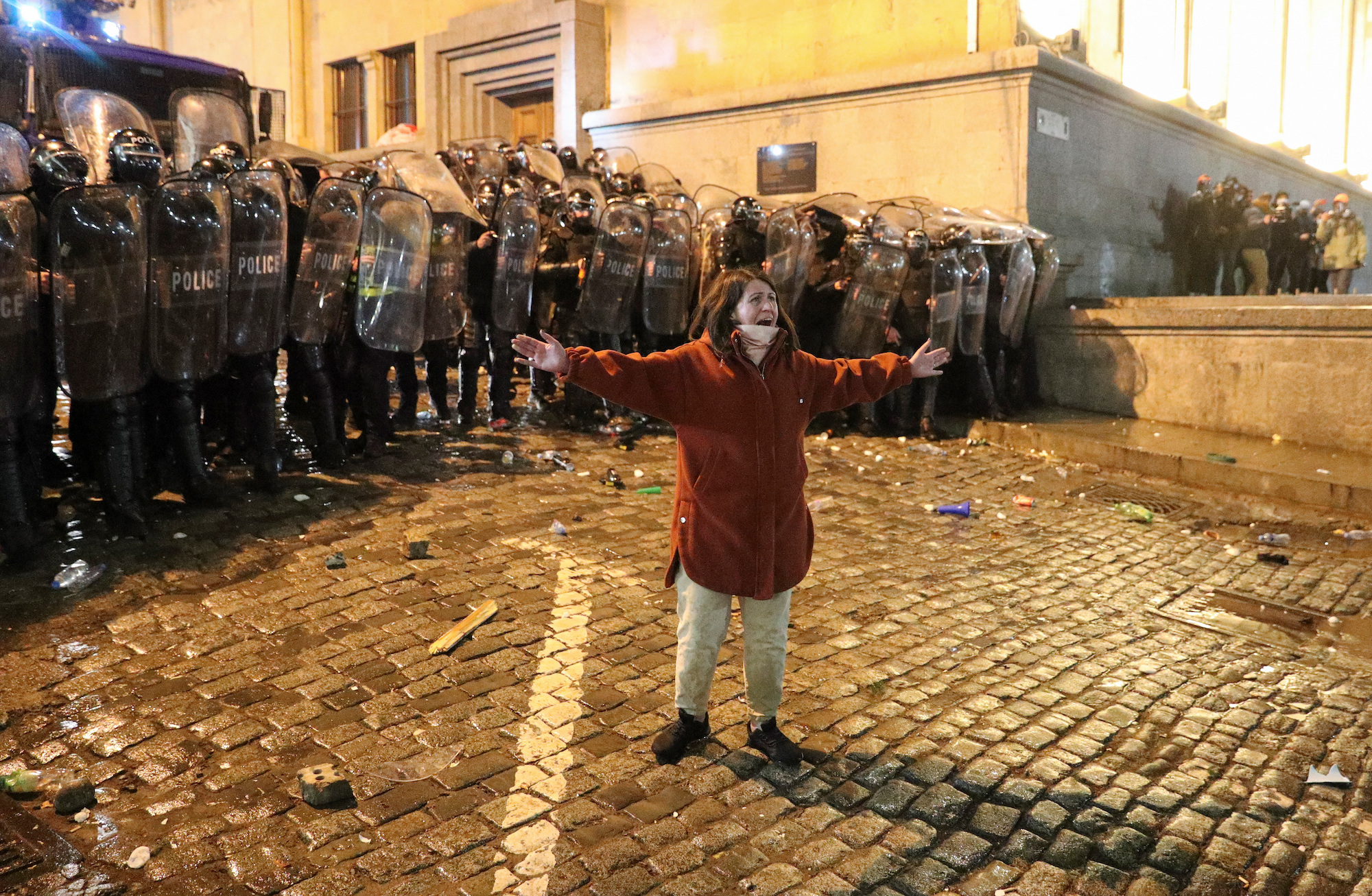
The former Soviet republic has played a balancing act between its citizens’ pro-European sentiment and its regional positioning next to Russia. Former Russian President Dmitry Medvedev said in 2011 that had Russia not invaded Georgia in 2008, NATO would have expanded into Georgia.
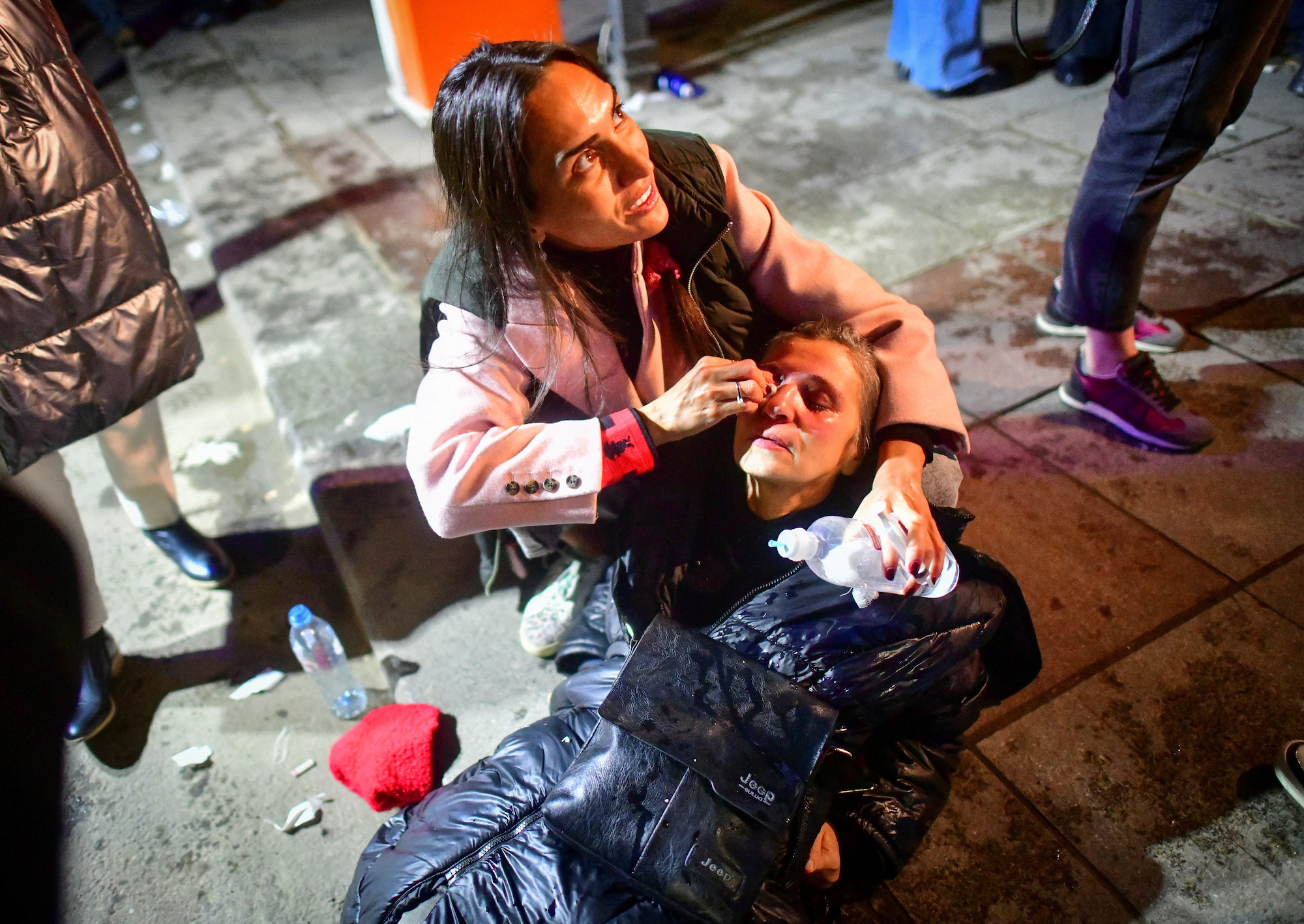
The invasion only lasted a couple days, but it appeared to have the same pretext Russian President Vladimir Putin used to invade Ukraine in 2014 and last year, writes think tank European Council on Foreign Relations (ECFR).
“In the last few years, and especially over the past 18 months, Georgia’s ruling coalition has made a series of moves that seem designed to distance the country from the West and shift it gradually into Russia’s sphere of influence,” ECFR writes in a report where it attributes much of the drift to the ruling Georgian Dream party.